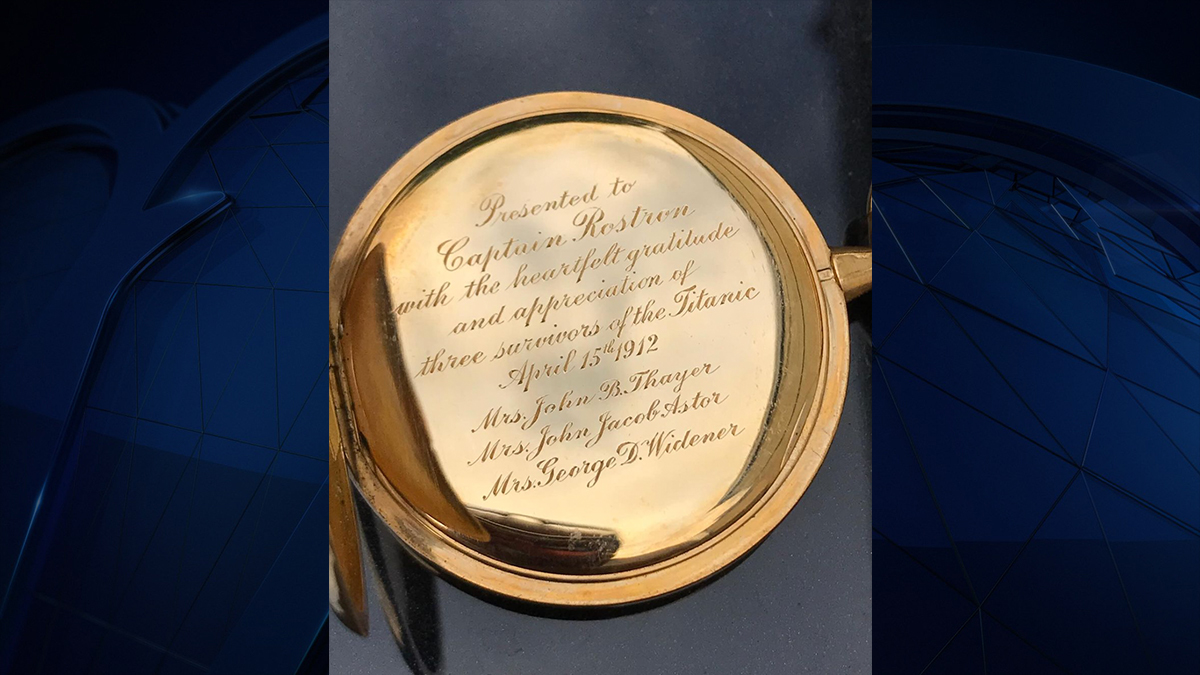What to Know
- 30-year-old Jordan Neely died on a train at the Broadway-Lafayette station in Manhattan on May 1 after allegedly threatening passengers and being put into a chokehold by Daniel Penny, who surrendered to police 11 days later
- The medical examiner's office ruled Neely's death a homicide, which incited a debate around whether the rider's actions were justified defense or vigilantism
- Multiple protests have taken place in Manhattan since Neely's death and dozens arrested; the Manhattan district attorney's office said Penny will be charged with second-degree manslaughter
The 24-year-old Marine veteran seen on video putting Jordan Neely in a chokehold on the floor of an F train in Manhattan last week, resulting in his death, was arraigned Friday on a single charge of second-degree manslaughter in a case that has prompted citywide protests and national controversy.
Dressed in a gray suit, Daniel Penny didn't enter a plea at his 15-minute hearing in Manhattan Criminal Court. He was released on $100,000 bond and ordered to surrender any passports within 48 hours. He also must ask the court's permission if he wants to leave New York state, and signed a waiver of extradition guaranteeing his return in the event he does without the OK.
Penny is due back in court July 17. He said nothing to reporters as he turned himself in at a Lower Manhattan precinct earlier in the day, which was done at the request of Manhattan District Attorney Alvin Bragg, said one of his lawyers, Thomas Keniff.
We've got the news you need to know to start your day. Sign up for the First & 4Most morning newsletter — delivered to your inbox daily. Sign up here.
"He did so voluntarily, and with the sort of dignity and integrity that is characteristic of his history of service to this grateful nation," Keniff said outside the 5th Precinct a short time later. He added that Penny "has his head held up high."
Penny's attorneys have previously said the veteran acted in self-defense and to protect fellow subway riders from a supposed perceived threat. They say he could "not have foreseen" Neely would die in the chokehold, and have called his death "the unfortunate result" of good Samaritan intervention. They also say he'll be absolved of the charge.
Neely's family has said the 24-year-old's statements amount to a confession.
U.S. & World
The day's top national and international news.
They've been calling for criminal charges since the city medical examiner's office declared the case a homicide a day after Neely's death, and hours after Penny was released from questioning by the NYPD in connection with the case. While the Neely family's attorneys said they were "overjoyed" by the arrest and arraignment, they don't believe the potential 5-15 year sentence is enough if Penny is convicted.
"Ask yourself: Is that enough? Is that enough for someone who choked someone out and took their life?" said Lennon Edwards at a Friday morning press conference, as the attorneys called for a murder charge instead. "He chose to continue that chokehold minute after minute, second after second, until there was no life left. That's what he chose."
Sources said Bragg's decision to charge Penny was made in consultation with the NYPD before presenting the case to a grand jury. Bragg, who said his office would not speak beyond the courtroom as the case proceeds, said his office determined there was probable cause to arrest Penny on felony charges.
"Jordan Neely should still be alive today, and my thoughts continue to be with his family and loved ones as they mourn his loss during this extremely painful time,” Bragg said.
A spokesperson for the police department didn't return requests for comment. Second-degree manslaughter is a felony and applies in cases where someone either recklessly causes the death of another or intentionally causes or assists in a person's suicide. In the case of Penny, a police report indicates the charge is tied to the former.
The court filing comes 11 days after Neely's death on May 1 and amid mounting public pressure over accountability following the medical examiner's determination. It wasn't clear if Bragg's office intended to pursue charges against two other people seen restraining Neely in that video or if those people had yet been identified.
Witnesses had reported Neely, a homeless man with a lengthy criminal record and a history of mental illness, was aggressive toward other riders on a train at the Broadway-Lafayette station in SoHo. He had been shouting at passengers, witnesses said, yelling that he was hungry and didn't care if he died. The 30-year-old had been on a special city homeless watch list, considered a potential risk to himself and others.
"Because someone has either mental illness or houselessness or has history of arrests, does not make them dispensable," said attorney Edwards.
Donte Mills, another lawyer for Neely’s family, disputed Penny’s version of events, saying the veteran “acted with indifference. He didn’t care about Jordan, he cared about himself. And we can’t let that stand.”
“Mr. Neely did not attack anyone.” Mills said. “He did not touch anyone. He did not hit anyone. But he was choked to death.
“No one on that train asked Jordan: ‘What’s wrong, how can I help you?’” Mills continued, urging New Yorkers in a similar situation: “Don’t attack. Don’t choke. Don’t kill. Don’t take someone’s life. Don’t take someone’s loved one from them because they’re in a bad place.”
The criminal complaint stated at Penny came up from behind Neely and pulled him to the ground, then held his arm around Neely's neck for "several minutes." An officer who reviewed video of the chokehold said that when Penny released him, "Mr. Neely appears to be unconscious."
Witnesses also said Neely hadn't physically attacked anyone before Penny moved to subdue him. Penny was questioned by the NYPD that day and released. Then came the autopsy findings.
Multiple protests have taken place in Manhattan since Neely's death, with dozens arrested. Protesters again ratcheted up the volume Thursday, after learning of the looming charges, and more demonstrations were expected Friday.
Earlier this week, Mayor Eric Adams, who had been accused by some of not weighing in substantially enough, formally addressed Neely's death in a public address.
The Democrat forcefully declared Neely "shouldn't have died" -- while carefully towing a line between acknowledging the loss, and the ensuing tensions, and appearing to ascribe any sort of responsibility.
"One of our own is dead," Adams said, empathizing with the emotional intensity coursing through the city over the case. "A Black man, Black like me -- a man named Jordan, the name I gave my son, a New Yorker who struggled with tragedy, trauma and mental illness, a man whose last words were to cry for help, a man named Jordan Neely."
Adams said his death is yet another indication the mental health system needs an overhaul to better protect those who, like Neely, he says fall through the cracks and "disappear into the shadows."
On Thursday, Adams again sidestepped when asked his view of whether what happened aboard the subway train was criminal.
"If this case goes to trial, I don’t want to talk about changing venues, tainted with the police," the Democratic mayor said.
As for Neely's death itself, Adams added, "We need to make sure we prevent these things from happening. That is within my span of control."
Jennifer Vazquez, Andrew Siff and Tracie Strahan contributed to this report.



